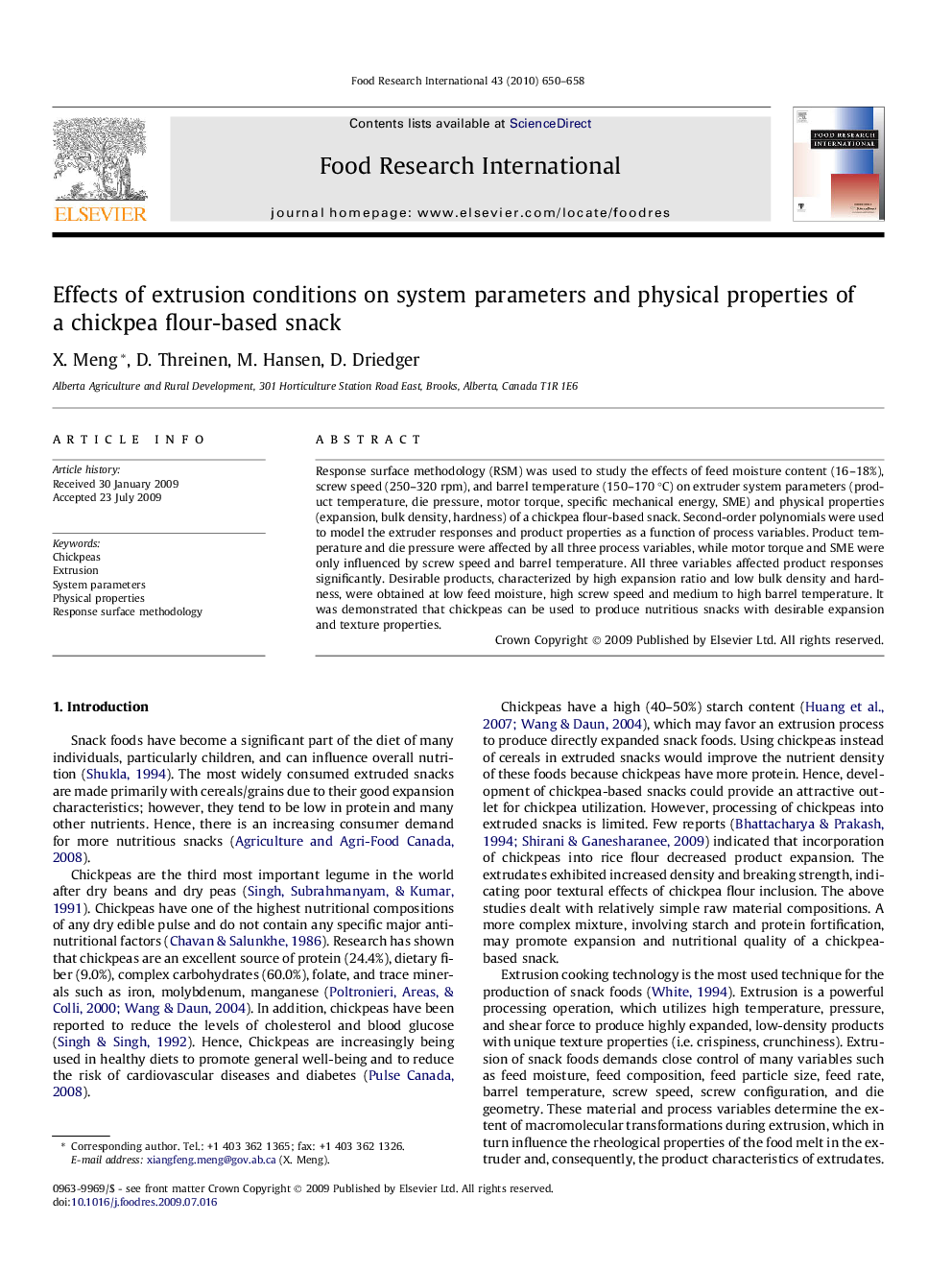| Article ID | Journal | Published Year | Pages | File Type |
|---|---|---|---|---|
| 4562754 | Food Research International | 2010 | 9 Pages |
Response surface methodology (RSM) was used to study the effects of feed moisture content (16–18%), screw speed (250–320 rpm), and barrel temperature (150–170 °C) on extruder system parameters (product temperature, die pressure, motor torque, specific mechanical energy, SME) and physical properties (expansion, bulk density, hardness) of a chickpea flour-based snack. Second-order polynomials were used to model the extruder responses and product properties as a function of process variables. Product temperature and die pressure were affected by all three process variables, while motor torque and SME were only influenced by screw speed and barrel temperature. All three variables affected product responses significantly. Desirable products, characterized by high expansion ratio and low bulk density and hardness, were obtained at low feed moisture, high screw speed and medium to high barrel temperature. It was demonstrated that chickpeas can be used to produce nutritious snacks with desirable expansion and texture properties.
